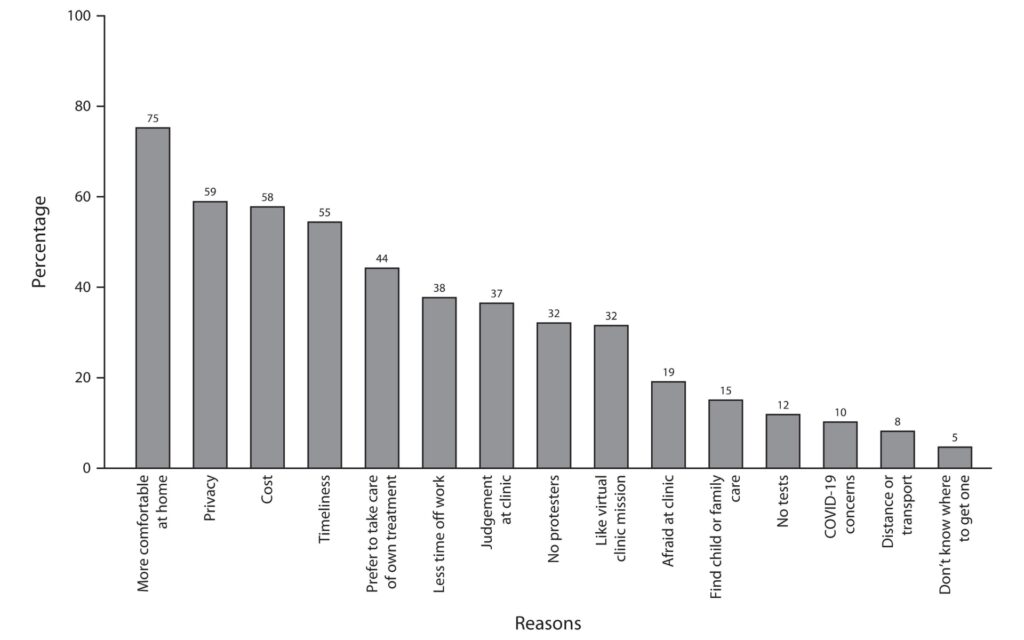Click to Care: Telehealth Abortion Services
Telehealth abortion services have become a pillar of reproductive care post-Dobbs, offering the unique benefit of receiving care at home.

Read Time: 2 minutes
Published:
Sterile white walls, the smell of antiseptic, uncomfortable silence, and stiff chairs. The ambiance of a standard waiting room in America.
A new waiting room – the scent of your favorite candle and the comfort of your favorite chair. Telehealth in your living room.
For a woman seeking an abortion, telehealth services may help decrease anxiety and broaden access at a time when abortion access is becoming limited. Virtual services are available for this care by providing the extremely safe medication abortion pill, known as mifepristone. During these visits, a woman meets with a provider who prescribes the medication and sends it to her house or a nearby pharmacy for pickup. She then has follow-up calls one and five weeks after the medication is ingested to ensure that it has the expected effects.
Telehealth abortion care is currently available in 24 states and Washington D.C. and accounted for approximately 10% of abortions in the U.S. in 2023 following the Supreme Court’s ruling in Dobbs v. Jackson, which overturned Roe v. Wade and removed the federal protection to an abortion that Roe had provided since 1973. Abortion pills are still available in all states through Plan C, where women can get medication mailed to them regardless of state laws.
Leah Koenig and colleagues evaluated patients’ reasons for and satisfaction with using telehealth abortion services. They used data from 20 states and Washington, D.C. from April 2021 to January 2022 from the California Home Abortion by Telehealth Study.

As shown in the figure above, participants reported being more comfortable at home (75%) and having privacy (59%) as the top reasons for choosing telehealth over in-person services. Cost and timeliness were also important reasons for opting for virtual services (58% and 55%, respectively).
The authors found that 96% of respondents felt that telehealth was the right choice for them. Additionally, they noted that telehealth remains vital in the evolving abortion landscape in the U.S. following the Dobbs decision, and with more court rulings about medication abortion on the way.



